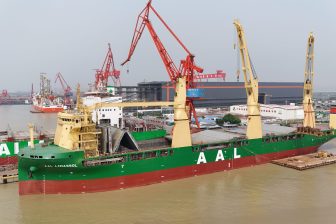
MPP sector not spared from Panama Canal, Red Sea issues
The multipurpose (MPP) shipping sector has not been spared from the disruptions in traffic flows in the Panama and Suez Canals. According to shipping consultancy Drewry, weather-related restrictions on the Panama Canal and the recent threat of missile attacks on merchant vessels navigating the Bab-el-Mandeb Strait, have impacted several shipping sectors, including the MPP.
Even larger vessels with heavy-lift capabilities (also known as project carriers) have shown a strong drop in the number of passings in the Panama and Suez Canals, according to Drewry.
Demand for project carriers has been strong due to the number and scale of industrial and energy projects, especially in the oil and gas, and wind energy sectors. Hence, a drop in passings and an increase in voyage length by going South around America and Africa have added to tonne-mile demand. This additional demand and utilisation have manifested in higher time charter rates, although increases have been slight so far, Drewry’s analysts said.

At the same time, stronger vessel demand starting next year is expected due to more project work, leading to a tight multipurpose vessel charter market in 2026/27, especially on the project carrier front, Drewry’s analysts said.
“A continuation of the disruption of vessel routes at Panama and the Red Sea could make the situation even more challenging for shippers,” according to Drewry.
As the orderbook of newbuild vessels is still rather small with utilisation levels already high, Drewry’s analysts think analysing geographical chokepoints and geopolitical events surrounding them will be a key aspect of multipurpose vessel market analysis, at least in the short- to mid-term.
You just read one of our premium articles free of charge
Register now to keep reading premium articles.




